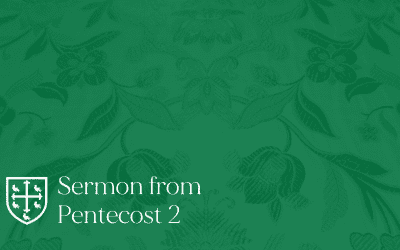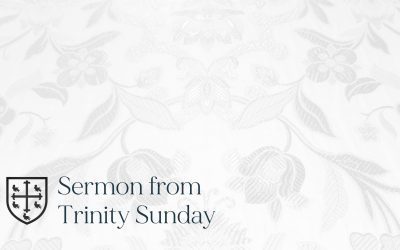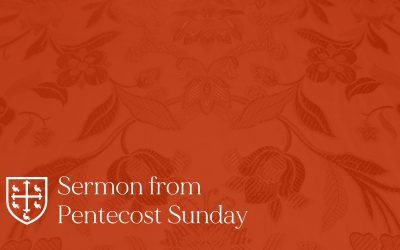1 Lent Year C 3/6/2022 Deuteronomy 26:1-11; Psalm 91:1-2, 9-16; Romans 10:8b-13; Luke 4:1-13 Rev. Mark A. Lafler
Today is the first Sunday in Lent…
The season, beginning with Ash Wednesday,
is a time for self-examination and repentance…
It is a time for prayer, fasting, and self-denial…
It is a time for reading and meditating on God’s holy Word… It is a time for alms giving.
And the first Sunday is always reserved for the narrative of our Lord Jesus in the wilderness when he was tempted by the devil.
Our time of Lent mirrors the 40 days that Jesus spent in the wilderness.
Jesus was tempted three times by the devil as recorded in the Gospels. Temptation is something that we all face in life.
5-year-old Johnny was told to stay out of the cookie jar that was on his mother’s kitchen counter. The mother was sitting in the living room when she heard a kitchen chair going across the floor towards the counter.
She shouted, “What are you doing, Johnny?” The boy responded, “I’m fighting temptation.”
1
Temptation is not sin…
But what we do with temptation is very important.
When we hear the Gospel lesson today about Jesus and how he resisted temptation we find a clue as to how we are to resist the temptations in our life.
All three times Jesus was tempted he resisted the desire by quoting the holy scriptures…
Each time he said: It is written…
May we take note: the more we know the word of God, and have it planted in our hearts and minds, we will be able to withstand the schemes of evil in our world.
Resisting temptation is what we are to do… As it says in James 4:7 –
Submit yourselves, then, to God.
Resist the devil,
and he will flee from you.
2
Today, though I want to focus on the last temptation by the devil.
St. Luke tells us:
The devil led him to Jerusalem and had him stand on the highest point of the temple.
“If you are the Son of God,” he said,
“throw yourself down from here.
For it is written:
“‘He will command his angels concerning you
to guard you carefully;
they will lift you up in their hands,
so that you will not strike your foot against a stone.’”
Jesus answered, “It is said: ‘Do not put the Lord your God to the test.
In this temptation the devil himself quotes from Holy Scripture… It is Psalm 91 the same psalm that is appointed for today.
Psalm 91 is a powerful psalm…
It features the ways and means that the Almighty God will rescue and protect his people from harm…
It specifically mentions: disease, battle, and deadly animals…
Of course, all of these would have been common during the time this psalm was written…
3
And obviously…
Disease and war are still prevalent today…
As we have been reminded of too frequently over the last two weeks and two years.
Psalm 91 has a powerful history in the church…
It is included as one of the four psalms appointed for Compline… The prayers in our Prayer Book that we say before bed.
Found in the Book of Common Prayer on page 127.
It is meant to bring comfort, strength, and encouragement against the dangers of night.
St. Athanasius in the 4th century suggested the psalm to Marcellinus in a letter.
He wrote:
If you desire to establish yourself and others in devotion,
to know what confidence is to be reposed [or rested] in God, and what makes the mind fearless,
you will praise God by reciting the ninety-first Psalm.1
1 James L. Mays, Psalms, Interpretation (Louisville: John Knox Press, 1994), 296.
4
That would be a good Lenten discipline… to memorize a psalm.
Psalm 91 would be an excellent choice.
But does Psalm 91 live up to its billing?
We heard in verse 10:
There shall no evil happen to you,
neither shall any plague come near your dwelling.
That doesn’t even sound reasonable… It seems in contrast to reality.
One commentator notes:
For certain believers this psalm provides some of the most comforting promises of the Bible.
For others these promises are some of its most unrealistic.
For the faithful who have experienced tragedy,
these promises smack of being cruel.2
Whether we are faithful to God or not… tragedy, disease, war, and a lot
of terrible things in our world seem to happen to all sorts of people. 2 Craig C. Broyles, Psalms, NIBC (Peabody: Hendrickson, 1999), 362.
5
With what kind of confidence can we have when we hear the words of Psalm 91?
There shall no evil happen to you,
neither shall any plague come near your dwelling.
How do we interpret this psalm?
Well, for starters we don’t want to interpret it the same way the devil did in the wilderness.
This was the psalm that the devil quoted…
the one he went to in the temptation of Jesus.
The devil suggests to Jesus that if he is God’s holy one…
Nothing bad should happen to him.
Tempting Jesus to throw himself down from the highest point of the temple.
Jesus responds with a quote from Deuteronomy (6.16) saying:
It is written: Do not put the Lord your God to the test.
Jesus did not understand the Psalm to be a promise that nothing bad would ever happen to God’s people.
6
And certainly, it was not appropriate to test God with a bad interpretation of the psalm.
One of the keys to understanding this psalm is in a small word that appears three times in its verses…
The word refuge.
Refuge and the similar imagery in the psalm create a concrete place to run to in times of danger.
It is the dominant image describing the obligation of believers… We are to run to God in times of danger and harm.
We are to put our trust in the Lord. Trust is the posture we take.
As the psalm says in the second verse:
I will say of the Lord, “He is my refuge and my fortress, my God, in whom I trust.”
Jesus knew that real trust in God does not seek to test God nor does real trust need God to prove his faithfulness.
Psalm 91 is not an issue of guarantees but it is to encourage faith in God.
7
Listen to the words of the first three verses of Psalm 46. A similar psalm in tone and content.
Psalm 46.1-3:
God is our refuge and strength,
an ever-present help in trouble.
Therefore we will not fear, though the earth give way
and the mountains fall into the heart of the sea, though its waters roar and foam
and the mountains quake with their surging.
Our lesson today is to heed the example of Jesus…
To trust in God…
To love God with all of our heart, soul, strength and mind… Is to trust God with our life.
Psalm 91 invites us to a trusting relationship with God. As Christian we should pray Psalm 91…
Of course, not in the interpretation of the devil…
But in the understanding of trust and faith in God.
8
God is with us in the battles that we face in this life. We are not alone.
Whether there be wars… Diseases…
or whatever there may be… God is with us.
We trust in him.
He is our hope.
And in Christ, the end is only the beginning… Because in Jesus Christ we have eternal life. We have our blessed hope.
We do not face the difficulties of this world without hope.
And the Holy Spirit guides us and comforts us as we put our trust in God.
We face our trials, temptations, and difficulties with a Lord and a Savior…
Jesus Christ…
The righteous one…
9
Who has redeemed the world…
By his sacrifice on the cross he has overcome evil…
By his resurrection from the dead he has defeated death. And he will come again to judge the living and the dead. He is our hope.
And that is why we can confidently pray Psalm 91:
He who dwells in the shelter of the Most High,
abides under the shadow of the Almighty.
He shall say to the LORD, “You are my refuge and my stronghold, my God in whom I put my trust.”
He shall call upon me,
and I will answer him in trouble;
I will rescue him and bring him to honor. With long life will I satisfy him,
and show him my salvation.
May our trust always be in the good, merciful, and loving God. Our refuge and strength.
Amen.
10




